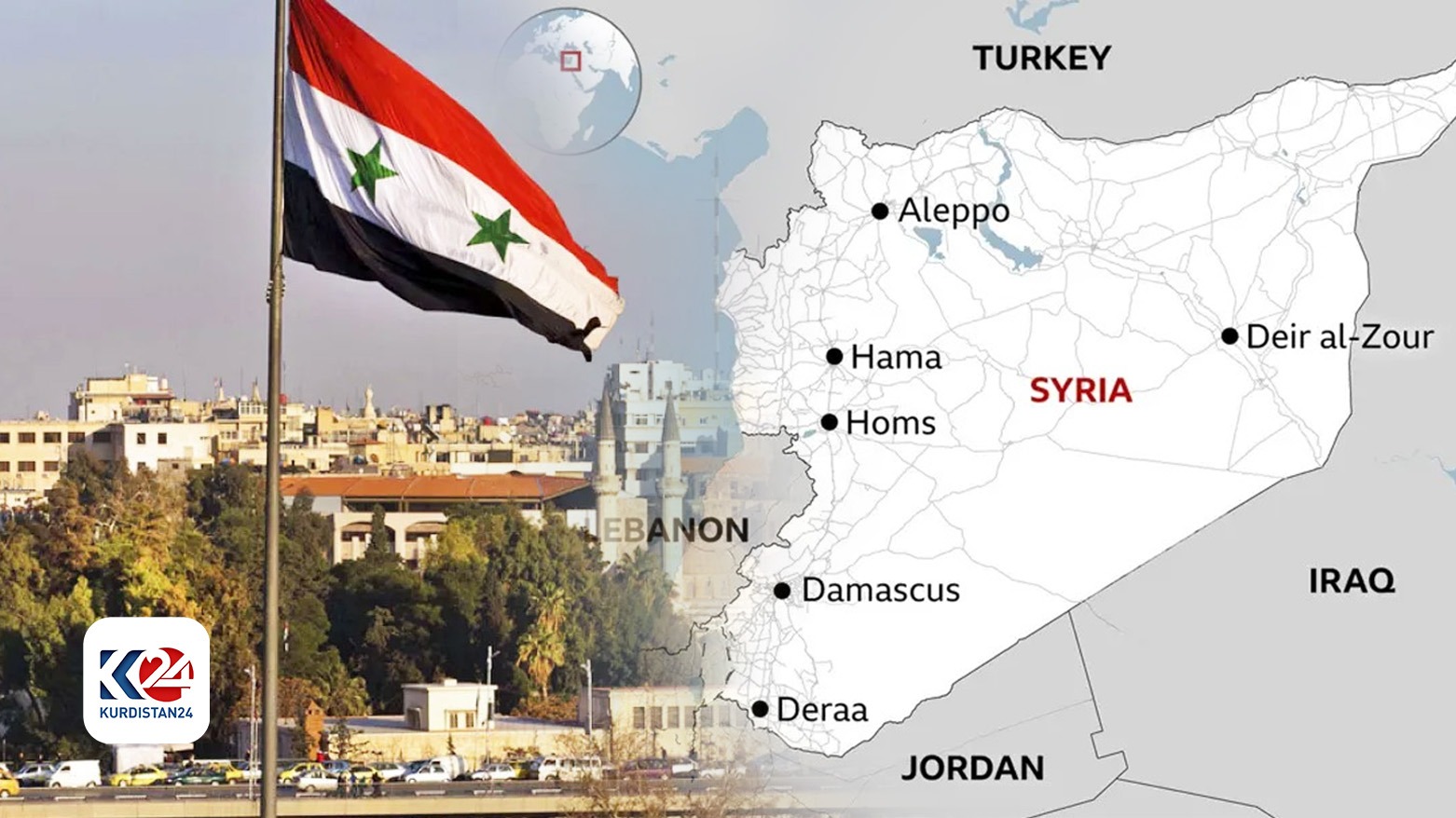Syrian opposition forces, rebels, in Western's view
Main armed rebels, starting from the east (Rojava), Kurdish-led forces under the name Syrian Democratic Force (SDF) believed to be backed by US, Syrian National Army (SNA), backed by Turkey, Hayat Tahrir al-Sham (HTS) once known as Jabhat al-Nusra proscribed by the UK, UN, U.S. and Turkey.

Dec. 10, 2024
ERBIL, Kurdistan Region (Kurdistan 24) – The Syrian rebels or opposition forces attempts, to topple Al-Assad president, and his regime, started from 2011, but the announcement of ousting Bashar al-Assad and his entire regime all over Syria, including controlling the capital city of Damascus, was on Sunday, December 8th, 2024.
The announcement happened in a breath-taking speed amid all the wars, conflicts, rising tensions and chaos in the Middle East, according to the street atmosphere and reporters, the Syrians celebrate in the streets with chants for freedom and being thankful to have Al-Assad overthrown and end of Al-Assad and his brutal dynasty regime which ruled for more than half a century.
The main armed oppositions in Syria, starting from the east part which is Rojava, the Kurdish-led forces under the name Syrian Democratic Force (SDF) believed to be backed by the U.S., Syrian National Army (SNA), backed by Turkey and Hayat Tahrir al-Sham (HTS), the later once known as Jabhat al-Nusra (Nusra Front) proscribed by the UK, UN, U.S. and Turkey.
The main focus by the western states is on the HTS regarded as one of the most effective and deadly of them all groups against President Al-Assad, besides being proscribed as a terrorist group by many countries, after being added as an alias of al-Qaeda in 2017.
According to CNN, UK Sky News, BBC and other famous international network reports, HTS announced it had cut ties with al Qaeda in 2016 and since has been making efforts to appear moderate, yet attentions also turn to developments on the ground in post-Assad Syria, as well as the insurgents and what happens next.
The UK Prime Minister Kier Starmer who is on tour to the Middle East, said to BBC "it is far too early, to consider a change of policy regarding taking off a terror group from the list"
The UK Home Office (HO) stated that it recognized HTS’s relationship with al-Qaida had changed, as there had been a “splintering between the two organisations”
"The situation on the ground in Syria is very fluid,” A Spokesperson in the HO stated to the British media outlets “the priority must be the safety of Syrian civilians and securing a political solution to the unfolding events"
The former Head of MI6 Sir John Sawers, stated in his interviews with the British most well-known media networks "the government should review its proscription of HTS because it cut ties with al-Qaida over the past decade"
In a response to a question, the former Head of MI6, Sir Alex Younger told BBC there was a "vacuum created by the end of the Assad regime, in which ISIS could re-group" He warned of "there could now be a serious spike in the threat posed by ISIS"
Official seniors in the UK believe that it is too soon to make any decision regarding removal of the Syrian rebel groups from the terror list.
"We mustn't get ahead of ourselves on what happens next," The UK prime minister added.
However, the senior cabinet minister Pat McFadden confirmed "the government will review the terror status of HTS, yet not forgetting Al-Jolani was associated with extremist groups in the past, he's the new leader in Syria, let's see what the character of the regime will be like."
Under the Section 4 of the Terrorism Act, the government can deproscribe an organisation, but only if that organisation applies the Home Secretary conditions to have the ban removed on them. Then the House of Commons and House of Lords must both agree on the deproscription.
Deputy Prime Minister Angela Rayner said "what we need to see is a political resolution in line with the UN resolutions, and we need to see civilians and infrastructure protected.
Far too many people have lost their lives - we need stability in that region, that's why we have to have a political solution where the government is acting in the interests of the Syrian people.
That's what we want to see, that's the type of democracy that we say is right for the world and that hopefully, is what the Syrian people will get."